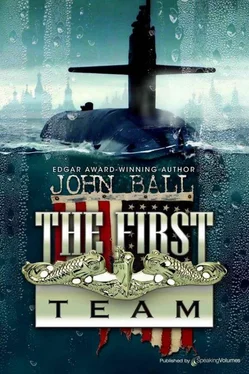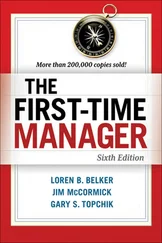Джон Болл - The First Team
Здесь есть возможность читать онлайн «Джон Болл - The First Team» весь текст электронной книги совершенно бесплатно (целиком полную версию без сокращений). В некоторых случаях можно слушать аудио, скачать через торрент в формате fb2 и присутствует краткое содержание. Год выпуска: 2013, Жанр: Триллер, на английском языке. Описание произведения, (предисловие) а так же отзывы посетителей доступны на портале библиотеки ЛибКат.
- Название:The First Team
- Автор:
- Жанр:
- Год:2013
- ISBN:нет данных
- Рейтинг книги:5 / 5. Голосов: 1
-
Избранное:Добавить в избранное
- Отзывы:
-
Ваша оценка:
- 100
- 1
- 2
- 3
- 4
- 5
The First Team: краткое содержание, описание и аннотация
Предлагаем к чтению аннотацию, описание, краткое содержание или предисловие (зависит от того, что написал сам автор книги «The First Team»). Если вы не нашли необходимую информацию о книге — напишите в комментариях, мы постараемся отыскать её.
Student protesters are being slaughtered in the Midwest.
The Jewish pogroms have begun.
You are now living in Soviet — occupied America!
One nuclear submarine and a handful of determined patriots against the combined might of Russia and Soviet-occupied America… The Most Explosive and Gripping “What If” Novel of Our Time!
First published January 1971
The First Team — читать онлайн бесплатно полную книгу (весь текст) целиком
Ниже представлен текст книги, разбитый по страницам. Система сохранения места последней прочитанной страницы, позволяет с удобством читать онлайн бесплатно книгу «The First Team», без необходимости каждый раз заново искать на чём Вы остановились. Поставьте закладку, и сможете в любой момент перейти на страницу, на которой закончили чтение.
Интервал:
Закладка:
Many announcements were made; rules were laid down and enforcement became arbitrary. There was no avenue of appeal, no recourse except obedience — immediate and complete. Of all of the pronouncements made, the one which caused the greatest stir concerned the change of language. As soon as enough teachers could be brought over, the American public was told, instruction would begin immediately in the enemy’s language. Five years would be allowed for the transition; after that all use of the English language would cease except for authorized scholastic programs and necessary research projects. All newspapers, magazines, books, and other means of printed communication would have to be changed over. No one, regardless of age, would be excused from studying the new required language. “It must be now remembered,” the official announcement had said, “that currently and henceforth we own the United States by right of conquest. It will soon cease to exist as a separate nation.”
An additional problem appeared, this one without any announcement whatever, when it was discovered that the supply of major household appliances was rapidly diminishing. Increasingly urgent calls from wholesalers to their sources of supply revealed that almost all of the available production was being shipped overseas. The cost was paid and no more, but production was ordered kept at a maximum level. One of the largest national manufacturers finally got a statement from the controlling enemy office: it said tersely that there was a greater need for comforts in the victorious nation which had sacrificed so much in order to make military triumph possible. America had too much already, and the situation could be expected to last for some years.
The weeks of the occupation progressed without any sign that complete surrender had left any resource out of the enemy’s hands. There was not a family which did not feel the pressure, or inwardly cringe under the steady progression of pieces of bad news, one after the other, without any mitigation or evidence of even a ray of hope. The massacre of the college students was known everywhere, and in many areas hopeful little groups who had planned to establish an opposition framework realized the hopelessness of their position. There were millions who cursed the men in Washington who had allowed this to come about; a prime target of this invective was Senator Solomon Fitzhugh, the renowned dove who more than any other single individual had cut the ground out from under the armed forces and sapped the morale of the entire country. A famous sentence was quoted uncounted times in bitter hindsight; it became the password of those who hoped that someday they could do something. It appeared on handbills printed and distributed under the noses of the occupying forces by men who knew that capture meant immediate certain death. Long forgotten in the wave of isolationism brought on by the unpopular Vietnam war, it came back too late to help in the existing crisis. It became instead a bitter reminder to be recalled again if freedom ever returned, that eternal vigilance is the price of liberty.
The sun had been in the sky for only an hour or so when a nondescript car turned off the highway in western Colorado and headed up a dirt road toward the open country. The two hunters it carried had little to say to each other as the car went up one grade and down another; instead they kept a careful watch looking for evidences of wildlife and for any signs of movement in their range of vision. After they had driven a quarter hour over the steadily narrowing road, they saw on their left the boarded-up entrance to an old mine shaft. Someone had taken the trouble to string a few strands of used barbed wire around the barricade to prevent stray cattle from falling to their deaths down the abandoned opening. A badly weather-beaten sign warned any human passersby that the site was dangerous. The hunter who was driving took careful note of the old mine, but said nothing; he continued on up the road until it terminated, for all practical purposes, a half mile farther on. There he pulled the car off into the brush and set the parking brake.
The security personnel who guarded the underground headquarters of Thomas Jefferson had had the car under observation almost from the time that it had left the highway. As the vehicle had passed the concealed entrance the occupants had been photographed by precision automatic equipment utilizing a classified film which yielded ultra-sharp images almost totally devoid of grain. As the two hunters, rifles in hand, began to walk back down the road toward the old mine shaft, their progress was followed. At the same time other sensitive equipment in nearby concealed locations swept the area to determine if any other persons were within visual or audible range. The findings were negative.
When the first of the hunters reached the barbed wire at the head of the shaft, he laid his left hand on one strand and took hold of another, three feet from it, with his right. Almost at once he felt a slight tingle of electricity, the invisible acknowledgment that he had passed surveillance and that the surrounding area was clear. A half minute later there was no sign of the hunters; the old car that they had been driving was all but invisible in the brush where it had been left.
Lieutenant Colonel Henry Prichard, the search and rescue pilot, received them in his office and immediately offered coffee. His manner was cordial but preoccupied; all of the members of the First Team were under heavy strain as the action date for Low Blow drew closer. It was necessary to provide for every possible contingency well in advance, because everything had to go on the first try. If it did not, for any reason whatsoever, the whole Thomas Jefferson operation would be dealt a body blow. The possibility of an oversight, no matter how slight, haunted everyone concerned and kept them rechecking and re-rechecking until the tension became almost intolerable.
“How do things look?” the colonel asked. “I haven’t been out of this hole in months.”
The hunter who had been the passenger in the car answered him. He was dark and not as tall as his companion, but he knew that the question had been directed more or less at him. “It isn’t good. You have all of the factual news, but the invisible part, the sagging of the national will to resist, is bad. The people are frightened.”
The colonel nodded. “The slaughter of the college students was a bad one. It upset some of our fringe people pretty much and we had to drop quite a few.”
“How did you manage that?” the first hunter asked. He was blond and heavy, the weather-beaten man of the western outdoors in appearance — a helicopter pilot by profession.
“We put out the word that despite our best efforts, we had to face the fact that the situation was hopeless. We added that we believed that some of the other free countries of the world would eventually come to our rescue and that there was some hope that the government that had overrun us was due to collapse. Our higher-up people were all solid, of course.”
“Did they buy it?”
“I think so: I just gave you the bare bones of it; Ed Higbee prepared the story and when he got through I was ready to believe it myself.”
“I miss his column,” the smaller man said. “I used to read him whenever I had the chance. I hope that he’ll go back to it someday.” “He may,” the colonel answered, “but he has another idea. When this is all over, he wants to run for the Senate. If it all works out, that might put him up against Fitzhugh; he’s from the same state.” “Then he’s in,” the blond man cut in. “Fitzhugh couldn’t get elected constable today — if we had elections.”
A small light went on on the panel of the colonel’s intercom. He noted it immediately and got to his feet. “Dave,” he said to the helicopter pilot, “you can wait here if you’d like; no offense, but you know the rules. Commander, if you’ll follow me, the admiral is ready to see you.”
Читать дальшеИнтервал:
Закладка:
Похожие книги на «The First Team»
Представляем Вашему вниманию похожие книги на «The First Team» списком для выбора. Мы отобрали схожую по названию и смыслу литературу в надежде предоставить читателям больше вариантов отыскать новые, интересные, ещё непрочитанные произведения.
Обсуждение, отзывы о книге «The First Team» и просто собственные мнения читателей. Оставьте ваши комментарии, напишите, что Вы думаете о произведении, его смысле или главных героях. Укажите что конкретно понравилось, а что нет, и почему Вы так считаете.












